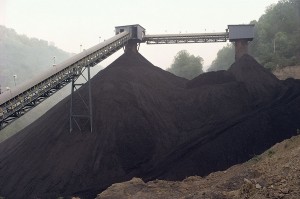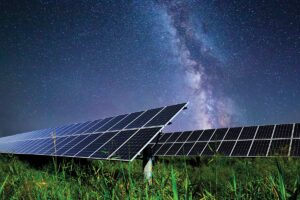 As most of you know, I did not run for re-election and will end my more than 24-year career in Congress this January. It has been a tremendous honor to serve the people of southwestern and southern Illinois. I have particularly enjoyed my close working relationship with the electric co-ops, and greatly appreciate the time and attention they continuously devote to maintaining affordable electricity options for rural America.
As most of you know, I did not run for re-election and will end my more than 24-year career in Congress this January. It has been a tremendous honor to serve the people of southwestern and southern Illinois. I have particularly enjoyed my close working relationship with the electric co-ops, and greatly appreciate the time and attention they continuously devote to maintaining affordable electricity options for rural America.
During my tenure in the House, I concentrated on the role that coal plays in our national energy policy and the research and development of clean coal technologies. Coal remains one of our most affordable and abundant fuels, with Illinois alone home to roughly 38 billion tons, almost one-eighth of the total coal reserves in the United States, which contain more BTUs than the oil reserves of Saudi Arabia and Kuwait.
However, ongoing environmental and regulatory concerns and cheap natural gas brought on by new and improved drilling technologies have caused some utilities to move away from building new coal facilities. Moreover, these developments threaten the critical research into technologies such as carbon capture and storage that are vital to the future use of coal.
While cheaper natural gas right now has many benefits, we must not fall into the trap that it solves all of our energy needs. Compared to coal, natural gas prices are historically more volatile, and we need to be maximizing the use of all of our energy resources to maintain good-paying coal jobs and our economy.
We have seen the negative effects of an unbalanced energy policy in Illinois before. I was one of only 21 members of Congress to vote against the Clean Air Act Amendments in 1990 because of the disastrous effects predicted for the Illinois coal industry. We are all for clean air, but the law did not do enough to protect coal communities from the dislocations the law brought on. Thousands of miners lost their jobs and whole regions were decimated. Two decades later, the industry is reviving, but we could be doing more to promote the use of Illinois coal.
Towards that goal, recent highlights include the opening of the state-of–the-art Prairie State Energy Campus, a mine-to-mouth operation in Washington County that is now fully on-line and providing electricity to 2.5 million families. The mine will produce 7 million tons of coal annually right there at the power plant. The plant will produce 1,600 megawatts of electricity, using supercritical technology making it one of the cleanest major coal-fired facilities in the country.
The FutureGen project is another example of cutting edge technology that needs our continued support. Proposed by President George W. Bush, FutureGen is a public/private partnership to build a 275 megawatt prototype power plant with emissions equal to those of natural gas. A major part of the proposal was the research and development of carbon capture and storage technologies, a process where carbon dioxide is pumped and stored underground to keep emissions from going into the environment. The current project will retrofit a power plant in Meredosia with an oxy-combustion coal-fueled boiler, capturing 1.3 million tons of carbon dioxide each year. Final approval for the project is pending before the Illinois Commerce Commission and I have urged the Commission to approve the FutureGen 2.0 power purchase agreement.

These are the types of projects that must go forward if we are to ensure coal remains a viable energy source in the U.S. Developing these technologies not only saves coal jobs, but creates an export industry to the rest of the world, where coal use is increasing.
Beyond providing reliable energy service and rates, I want to thank the electric cooperatives of Illinois for all of the work your employees do every day to improve the quality of life in rural areas. While I will not be in Congress, I look forward to continuing our work together on behalf of families that want affordable, clean electricity.







